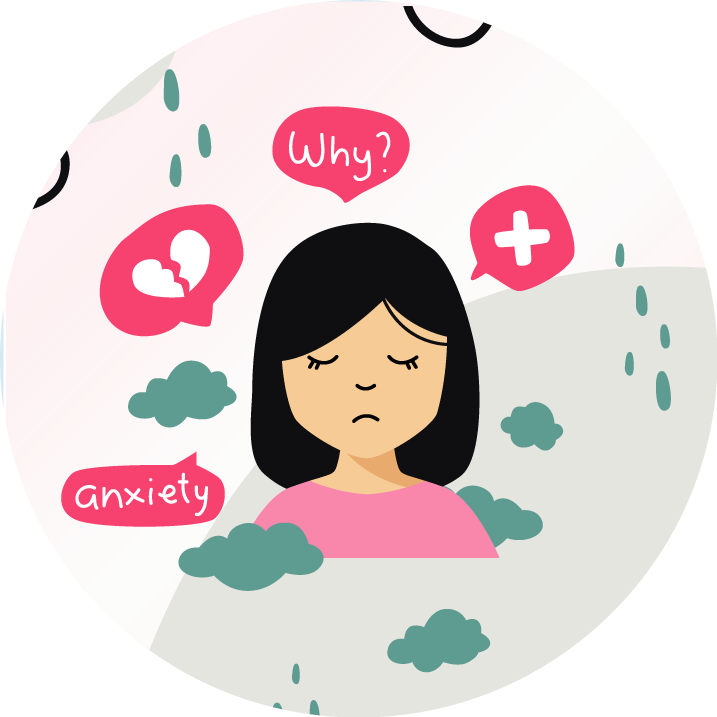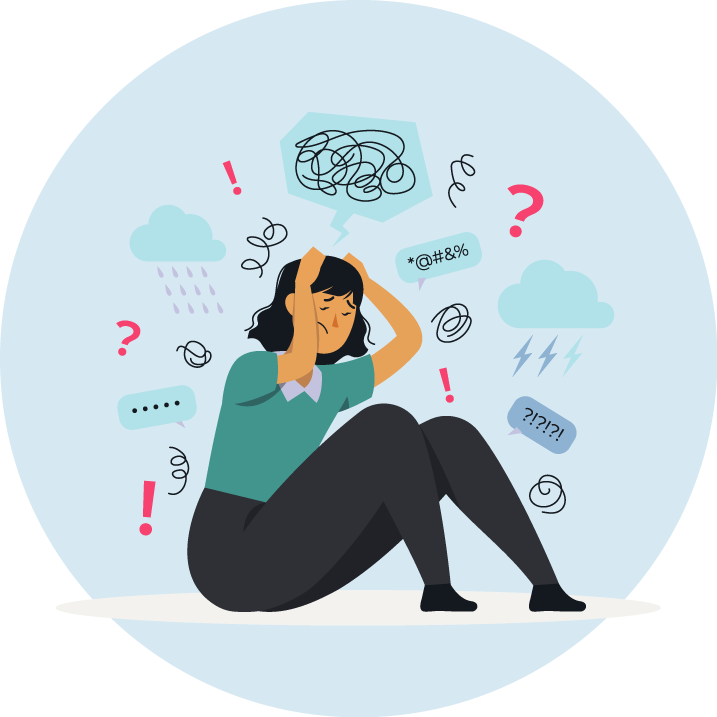Diet that Ease Anxiety Symptoms

Diet that Ease Anxiety Symptoms
March 01 2024 TalktoAngel 0 comments 140 Views
Anxiety is among the most common mental health issues, affecting around 7.3 per cent of the world's population. It's a broad term that refers to a variety of ailments -- including Generalized Anxiety Disorders, Social Anxiety and Phobias. It is characterized by a continuous feeling of anxiousness, stress, tension and nervousness that could hinder your daily life.
In many instances, Online Therapy and medication by a trusted psychologist are necessary as a primary method of treatment. There are a variety of methods that could also be utilized to lessen anxiety symptoms, ranging from exercise to breathing and other relaxation methods. In addition, there are a myriad of food items you can consume to help improve brain function and lessen the severity of your anxiety symptoms.
A diet that incorporates the following foods can aid in reducing the effects of anxiety
- Egg: Eggs particularly those from hens raised on pasture are an additional food source for protein and Vitamin D. Eggs have all the essential amino acids your body requires to grow and develop. Eggs also contain tryptophan which is an amino acid that aids in the creation of serotonin. Serotonin is a neurotransmitter chemical that is found in the brain, and blood platelets, which regulates mood, Sleep, memory, and behaviour. Serotonin may improve the brain's function and ease anxiety.
- Pumpkin seeds: The seeds of the pumpkin are a great source of potassium that helps regulate electrolyte balance as well as regulate blood pressure. A study from 2008 found that lower magnesium and potassium levels were linked to high levels of cortisol, which is a stress hormone that adrenal glands secrete. Consuming potassium-rich foods like bananas and pumpkin seeds can help ease the symptoms of anxiety and Stress. The seeds of pumpkin are also an excellent source of zinc, the mineral found in many foods. A study that was conducted by 100 women high school students revealed that zinc levels in the blood were not related to mood disorders like anxiety and depression. Zinc is also vital to the brain's development and development of nerves.
- Turmeric: Turmeric is an ingredient commonly utilized as a spice in Indian as well as Southeast Asian cuisine. Turmeric's active component, dubbed curcumin, is believed to help reduce anxiety by decreasing inflammation as well as oxidative stress, which tends to increase in people suffering from mood disorders like Depression and anxiety. A study from 2015 found that taking 1g of curcumin a day decreased anxiety in obese adults.
- Green tea: Green tea has an amino acid, theanine. It is under scientific research due to its potential impact on mood disorders. Theanine has a calming and anti-anxiety effect and could boost serotonin production and dopamine. A study published in 2017 found that taking 200mg of theanine helped improve self-reported calmness and relaxation while decreasing tension in human studies.
- Chamomile: Chamomile is an herb that has been shown to help lower anxiety. It is a source of antioxidants and anti-inflammatory properties that can help reduce inflammation that is caused by anxiety. Though the mechanisms aren't clear, chamomile is believed to help regulate neurotransmitters related to mood such as serotonin, dopamine, and gamma-aminobutyric acid (GABA). It may also assist control of the hypothalamic-pituitary-adrenocortical (HPA) axis, which is an important aspect of the body's stress response.
There aren't any diet modifications that will immediately relieve anxiety, however, being aware of what you eat could help reduce the symptoms of anxiety. To begin, you can try these tips:
- Take a meal which contains proteins. Eating protein at breakfast will help you feel fuller and keep your blood sugar level steady so you can have more energy to start your day.
- Consume Complex carbs. Carbohydrates are thought to boost the levels of serotonin that your brain produces which has a relaxing effect. Consume foods that are rich in complex carbohydrates, like whole grains, like oatmeal, quinoa, whole grain cereals and breads. Beware of food items that are simple carbs like sugary food items and drinks.
- Get plenty of fluids. Even mild dehydration can impact your mood. So have an ample amount of fluid intake.
- Reduce or eliminate drinking alcohol. The immediate effect of alcohol could be calming. However, since the alcohol gets processed in the body, it may cause you to become agitated. Alcohol can also affect the quality of sleep.
- Limit or eliminate coffee. Avoid caffeinated beverages. They can cause you to feel anxious and nervous, and disrupt sleeping.
- Be aware of foods that cause sensitivities. In some people, certain foods or additives can trigger uncomfortable physical reactions. For some people, this type of physical reaction can cause mood changes and cause anxiety or irritability.
- Make sure you eat nutritious, balanced and healthy foods. Healthy eating is vital for good mental and Physical Health. Consume plenty of fresh vegetables and fruits and avoid eating too much. It might also be beneficial to eat fish rich in omega-3 fatty acids like salmon regularly.
Modifications to your diet can affect your general mood or feeling of wellbeing however they're not the same as treatment. Lifestyle modifications, like improving your sleep habits, boosting social connections, employing stress reduction techniques, and regular physical exercise, also may help. Be patient, as it could take a while before you see these changes affecting anxiety.
If you are suffering from anxiety that is extreme or is affecting your daily activities or life enjoyment you may require Online Counselling (psychotherapy) as well as medication or other forms of treatment. If you are experiencing anxiety or stress it is recommended to consult a professional for help, like a psychologist or a counsellor. Find the best psychologist and top Online Counsellor at TalktoAngel.
Sometimes, a physician or mental healthcare professional could suggest talking therapy, such as Cognitive Behavioural Therapy (CBT) to help manage stress and anxiety. Doctors or Online Psychiatrists may prescribe medications such as serotonin-norepinephrine reuptake inhibitors (SNRIs), selective serotonin reuptake inhibitors (SSRIs), or benzodiazepines to cope with severe levels of anxiety.
Contribution by: Dr (Prof) R K Suri, Best Clinical Psychologist & Life Coach & Mr. Utkarsh Yadav, Counselling Psychologist
Leave a Comment:
Related Post
Categories
Related Quote

“Anxiety is a thin stream of fear trickling through the mind. If encouraged, it cuts a channel into which all other thoughts are drained.” - Arthur Somers Roche

"It is okay to have depression, it is okay to have anxiety and it is okay to have an adjustment disorder. We need to improve the conversation. We all have mental health in the same way we all have physical health." - Prince Harry

“What ever the mind of man can conceive and believe, it can achieve.” - Napoleon Hill

“My anxiety doesn't come from thinking about the future but from wanting to control it.” - Hugh Prather

“A good laugh and a long sleep are the best cures in the doctor’s book.” - Irish Proverb
Best Therapists In India
































SHARE